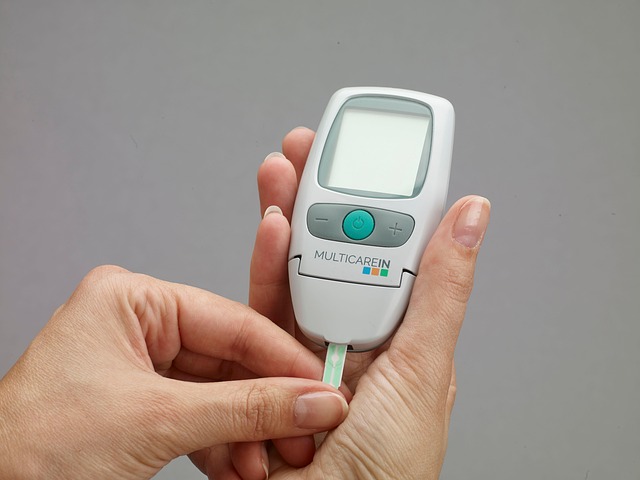A UK testosterone blood test is a crucial tool for assessing cardiovascular health, as high cholesterol levels (especially LDL or 'bad' cholesterol) pose significant risks for heart disease and stroke. Regular testing according to NHS guidelines (total cholesterol below 5 mmol/L, LDL under 3 mmol/L, HDL above 1 mmol/L) helps detect early signs of problem areas, enabling lifestyle adjustments or medical interventions like statins to mitigate risks effectively. Interpretations of test results should be discussed with a healthcare provider for personalized guidance.
Cholesterol is a vital component of our bodies, but elevated levels can pose significant health risks. This article delves into the importance of cholesterol level testing through blood tests, a crucial tool for maintaining cardiovascular health in the UK. We explore what cholesterol is, why it matters, and how blood tests help monitor these levels effectively. Additionally, we guide you through interpreting test outcomes, providing insights tailored to the UK healthcare system. Understanding your cholesterol numbers is essential for proactive health management.
- Understanding Cholesterol: What It Is and Why It Matters
- How Blood Tests Help Monitor Cholesterol Levels
- Interpreting Results: Navigating Cholesterol Test Outcomes in the UK
Understanding Cholesterol: What It Is and Why It Matters
Cholesterol is a waxy substance found in your blood that plays a crucial role in maintaining good health. It’s essential for building and repairing cell membranes, producing hormones, and manufacturing bile, which aids in digestion. However, high cholesterol levels, particularly LDL (low-density lipoprotein) or ‘bad’ cholesterol, can lead to serious health issues in the UK. Regular testosterone blood tests are often recommended as part of routine check-ups due to their significance in assessing overall cardiovascular health.
In the UK, maintaining healthy cholesterol levels is vital for preventing conditions like heart disease and stroke. High cholesterol often shows no symptoms, making it crucial to understand your numbers through regular testing. A simple UK testosterone blood test can provide valuable insights into your cholesterol profile, helping you make informed decisions about lifestyle changes or medical interventions to manage and improve these levels.
How Blood Tests Help Monitor Cholesterol Levels
Blood tests are a fundamental tool in monitoring cholesterol levels, offering valuable insights into an individual’s cardiovascular health. By taking a small sample of blood, healthcare professionals can measure the concentrations of low-density lipoprotein (LDL) and high-density lipoprotein (HDL) cholesterol, providing a comprehensive picture of one’s lipid profile. These tests are particularly crucial in the UK, where lifestyle factors and genetic predispositions can contribute to elevated cholesterol levels.
Regular UK testosterone blood tests play a significant role in early detection and management. High LDL cholesterol, often referred to as ‘bad’ cholesterol, is associated with an increased risk of heart disease and stroke. Conversely, HDL cholesterol, known as ‘good’ cholesterol, helps remove LDL from the bloodstream. A balanced lipid profile, achieved through regular testing and lifestyle adjustments if necessary, can significantly reduce these risks.
Interpreting Results: Navigating Cholesterol Test Outcomes in the UK
When it comes to interpreting results from a UK testosterone blood test, understanding your cholesterol levels is crucial. Total cholesterol is measured in millimoles per litre (mmol/L). According to NHS guidelines, optimal levels are below 5 mmol/L. Anything between 5 and 7 mmol/L is considered borderline high, while above 7 mmol/L is classed as high. Low-density lipoprotein (LDL) cholesterol, often referred to as ‘bad’ cholesterol, should be kept below 3 mmol/L, as it can lead to plaque build-up in arteries. On the other hand, high-density lipoprotein (HDL) cholesterol, known as ‘good’ cholesterol, is beneficial; higher levels are better, ideally exceeding 1 mmol/L. These readings help healthcare professionals assess your cardiovascular health and determine if lifestyle changes or medical intervention are necessary.
Navigating these outcomes involves discussing them with your doctor. They can provide context based on other health factors and offer tailored advice. If cholesterol levels are high, lifestyle modifications such as a healthier diet, regular exercise, weight management, and smoking cessation may be recommended. In some cases, medications like statins might be prescribed to help lower cholesterol and reduce the risk of heart disease. Regular testing is essential to monitor progress and ensure these interventions are effective.
Cholesterol level testing through blood tests, such as the UK testosterone blood test, is a crucial step in maintaining heart health. By understanding your cholesterol levels and interpreting the results accurately, you can make informed decisions to improve your lifestyle and overall well-being. Regular monitoring enables proactive navigation of potential health issues, ensuring a healthier future.
